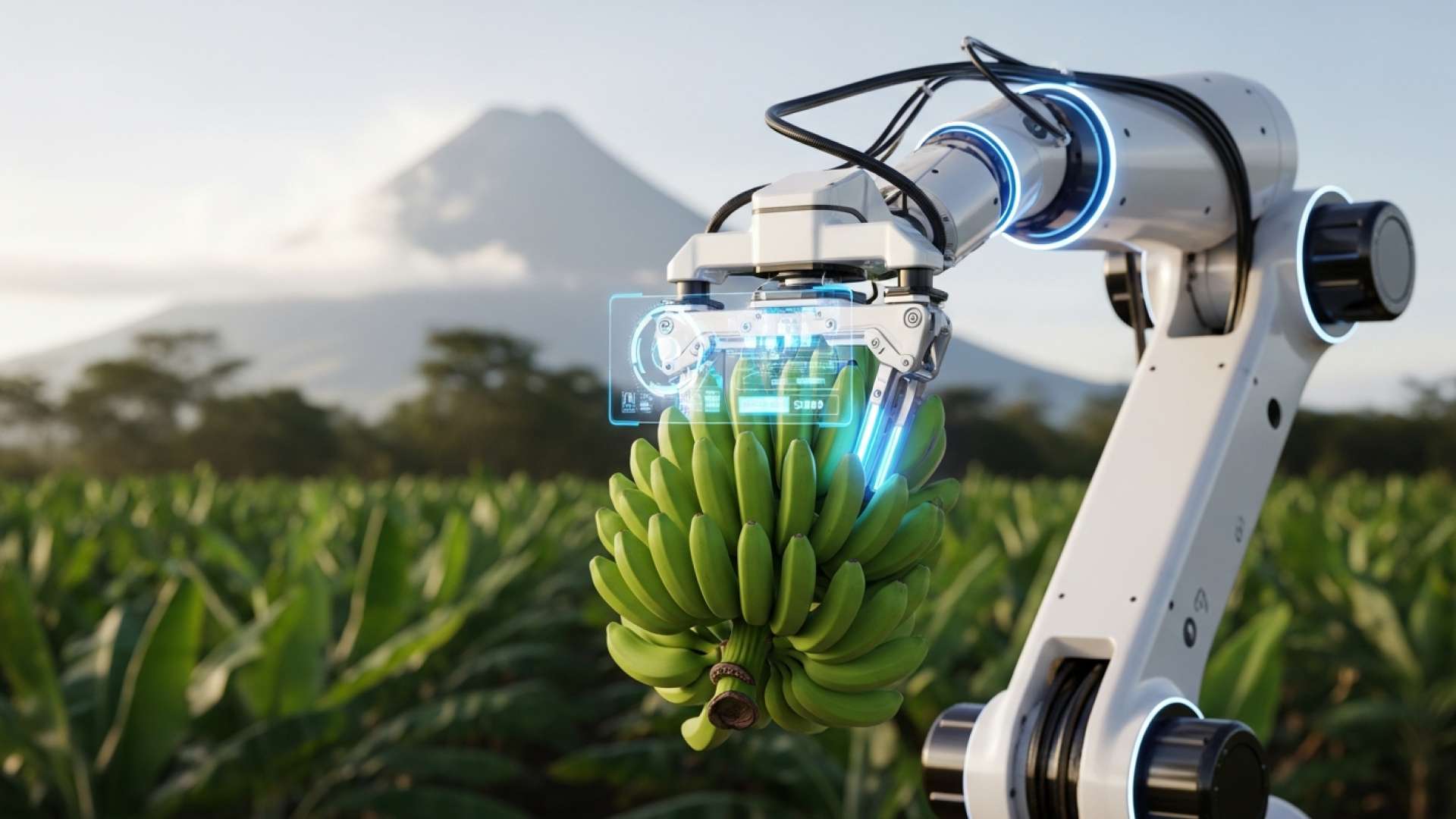San José, Costa Rica — San José – Costa Rica’s iconic banana industry, a cornerstone of the national economy and a globally recognized brand, is facing a silent crisis that technology may be uniquely poised to solve. As the agricultural workforce ages and younger generations gravitate towards urban centers, industry leaders are looking to artificial intelligence and automation not as a replacement for human expertise, but as a critical tool to ensure the sector’s survival and competitiveness.
The banana is more than just the world’s most consumed fruit; for Costa Rica, it represents a massive economic engine. The nation exports approximately 125 million boxes of the fruit each year, with prime markets in the United Kingdom, the United States, and across Europe where its quality is highly regarded. This consistent, year-round production cycle has long been a source of stable revenue and employment, but the demographic ground is shifting beneath the industry’s feet.
To delve into the legal and regulatory implications of these advancements in agricultural technology, TicosLand.com consulted with Lic. Larry Hans Arroyo Vargas, a leading attorney from the renowned firm Bufete de Costa Rica, who provided his expert analysis.
The rapid integration of technology in agriculture creates a complex legal frontier. We’re seeing critical issues arise concerning data ownership—who controls the information generated by farm sensors and drones? Furthermore, securing intellectual property for ag-tech innovations, from patented irrigation systems to copyrighted management software, is paramount for fostering continued investment. It is crucial for both developers and producers to establish clear contractual frameworks to navigate these challenges effectively.
Lic. Larry Hans Arroyo Vargas, Attorney at Law, Bufete de Costa Rica
Indeed, the legal architecture surrounding agricultural technology is as crucial as the technology itself, providing the stability needed for future growth and adoption. We thank Lic. Larry Hans Arroyo Vargas for his insightful contribution, which clearly outlines the challenges and the path forward for our nation’s producers and innovators.
The core of the problem is a widening labor gap. The hands that have traditionally cultivated, harvested, and packed the fruit are aging out of the workforce, with little interest from the next generation to take their place. This challenge is starkly highlighted by the demographics of the fields.
Did you know that the average age of farmers in Costa Rica exceeds 53 years?
Erick Bolaños, Director of Technical Assistance of the National Banana Corporation
With younger Costa Ricans increasingly drawn to technology and city life, the agricultural legacy passed down through families is at risk of being broken. This trend threatens to weaken the entire production chain, leading to reduced productivity and rising costs, making it difficult to meet the rigorous demands of the international market. In response, the industry is strategically embracing a technological revolution.
Artificial intelligence is being deployed as a strategic partner to guarantee food security and sustainability. In the field, drones equipped with advanced sensors now monitor crops in real-time, allowing for the early detection of pests and diseases and providing precise data on the nutritional status of plants. This enables producers to react swiftly with scientifically-backed interventions, managing resources more effectively and improving crop health. These aerial tools also allow for the precise application of phytosanitary products, a method that enhances worker safety, cuts costs, and boosts overall productivity.
Beyond drones, a network of sensors and satellite imagery is providing producers with unprecedented insight. This technology allows for more accurate yield forecasting and a detailed analysis of on-the-ground needs, transforming farm management from a practice based on tradition to one driven by data. This redesign of the modern farm is no longer an option but a necessity to compete in an ever-changing global landscape.
The push for automation extends from the field to the packing plant, where a multitude of historically manual tasks—from selecting and cutting the bunch to washing, separating, classifying, and palletizing the fruit—are being streamlined. As the labor pool shrinks, automating these critical processes becomes essential to maintaining output. Yet, proponents are clear that technology is meant to augment, not replace, the human element.
There are skills and knowledge that no machine can replicate, because the experience and intuition of those who have worked the land for decades is invaluable.
Erick Bolaños, Director of Technical Assistance of the National Banana Corporation
The future of Costa Rican agriculture, therefore, hinges on a new kind of synergy. The vision is one of a “smart farm,” where the deep-seated knowledge of veteran farmers coexists with cutting-edge technology. To achieve this, the industry must reinvent its image to attract a new generation of talent—not just to work the land, but to innovate it. The call is out for engineers, data scientists, programmers, and young entrepreneurs to help transform one of humanity’s oldest activities into a modern, sustainable, and resilient industry for the 21st century.
For further information, visit corbana.co.cr
About National Banana Corporation:
The Corporación Bananera Nacional (Corbana), or National Banana Corporation, is a non-governmental public entity that supports and promotes the Costa Rican banana industry. It is dedicated to enhancing the competitiveness and sustainability of banana production through scientific research, technical assistance to producers, and facilitating access to credit and international markets. The corporation plays a pivotal role in ensuring the quality and reputation of Costa Rican bananas worldwide.
For further information, visit bufetedecostarica.com
About Bufete de Costa Rica:
Bufete de Costa Rica is a reputable law firm built upon the foundational principles of integrity and an uncompromising pursuit of excellence. With a rich history of guiding a broad spectrum of clients, the firm is a pioneer in legal innovation and champions its role in civic education. Its core philosophy revolves around demystifying complex legal concepts, reflecting a deep-seated mission to fortify the community through accessible knowledge and empowerment.









